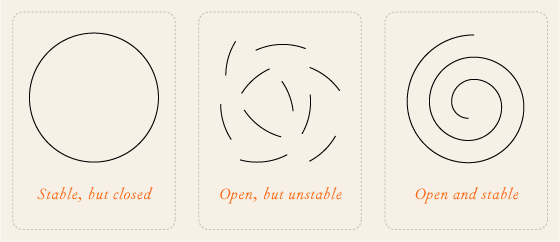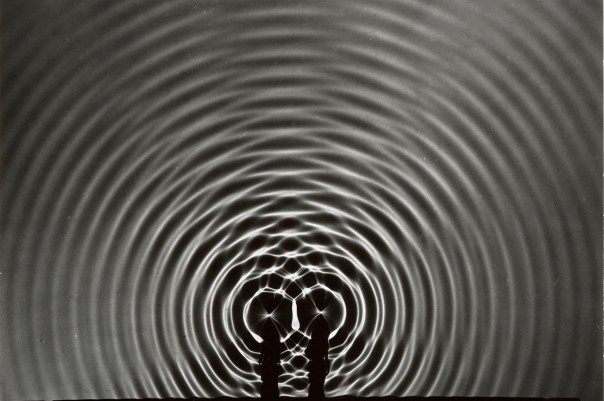I’m reading flaky stuff these days. The exact material is nobody’s business, but it’s even more shocking than you’d guess. It inspired the following spew.
I just found a parallel between two of the books I’m poking around in and my own sacred pamphlet, which is more or less visualized enceptions of my personal faith. (It was not easy to find my genre.) …
In the first book, it is suggested that our worldviews naturally close in on themselves and form vicious logical and interpretive circles. To open the the circle is to form a holy spiral. The opening of that circle is Shabbat. In my tradition it is understood that Shabbat punches a 24-hour diameter hole in time, through which flows Eternity and the Shekhinah (a feminine facet of the Divine), and establishing, for those with the senses to perceive it, Malchut, the Kingdom of Heaven. In this space we are invited to suspend the cranking of our automatic thoughts and behaviors and to open out to the world in its glorious profusion of overlapping orders.
In the second book, a figure is presented, a triangle with a center point. Each point is a letter of the Tetragrammaton. Yod, Heh, Vav, Heh. Yod is the active principle, the potential to do. The first Heh is the material upon which Yod may act. Vav is the result of the action upon the material, the child of the Yod-Heh intercourse. The second Heh is the center of the triangle , the entirety of the triangle rooted from the center, which I am inclined to understand as the transcendent being of the triad. This transcendent being of the second Heh then becomes the Yod of another triangle. I am inclined to understand Yod as a transcendental subject whose being is only manifested when it acts upon the first Heh. But the action of Yod and its result ultimately produces the second Heh, which is a transcendent subject. In my understanding then, the triangles are linked by transcendent subjects who found new transcendental subjects.
Some old insights that feel feel alive to me today: Opening the circle into a spiral not only allows it to open onto what transcends its outer limits — to extend outwardly to embrace more and more reality — that same opening permits the spiral to intend inwardly and enter into its own heart, at the center of which lives the divine spark. But some of this reality is the reality of other people. Two spirals can coil together as a double spiral, as can three, four … myriad. A closed circle implies the question, who contains whom? Spirals are egalitarian.
A new Jewish thought. Torah famously ends open-endedly. Moses never enters the land. The Torah is several essential loops of the spiraling story of the Israelites. Past Torah, beyond Deuteronomy, outspirals Talmud, the application of Torah to practical and communal life. But the inward coiling of Torah beneath Genesis, further into the weird heart of the faith inspirals Zohar.
The opposite spirality, who self-referentially thinks about thinking about thinking, and experiences the experiences of our experiencing, is the self choking beast, the Gorging Ouroboros.
Bite!
A young shepherd I saw, writhing, gagging, in spasms, his face distorted, and a heavy black snake hung out of his mouth. Had I ever seen so much nausea and pale dread on one face? He seemed to have been asleep when the snake crawled into his throat, and there bit itself fast. My hand tore at the snake and tore in vain; it did not tear the snake out of his throat. Then it cried out of me: “Bite! Bite its head off! Bite!” Thus it cried out of me — my dread, my hatred, my nausea, my pity, all that is good and wicked in me cried out of me with a single cry. … The shepherd, however, bit as my cry counseled him; be bit with a good bite. Far away he spewed the head of the snake — and he jumped up. No longer shepherd, no longer human — one changed, radiant, laughing! Never yet on earth has a human being laughed as he laughed!


